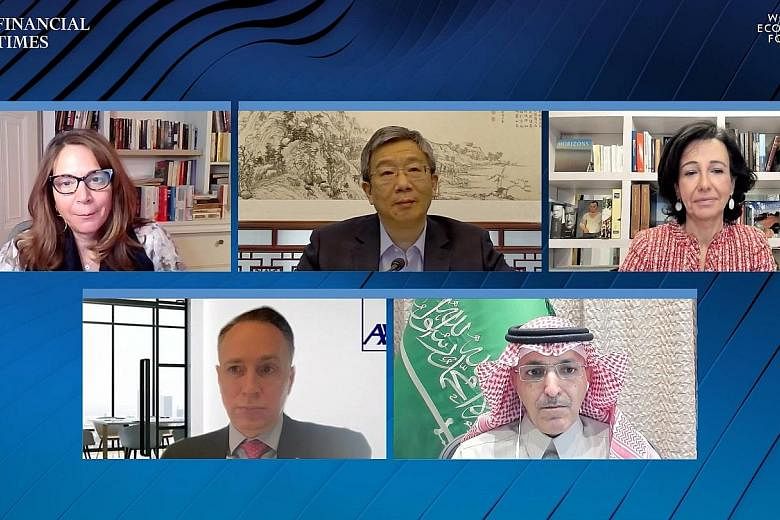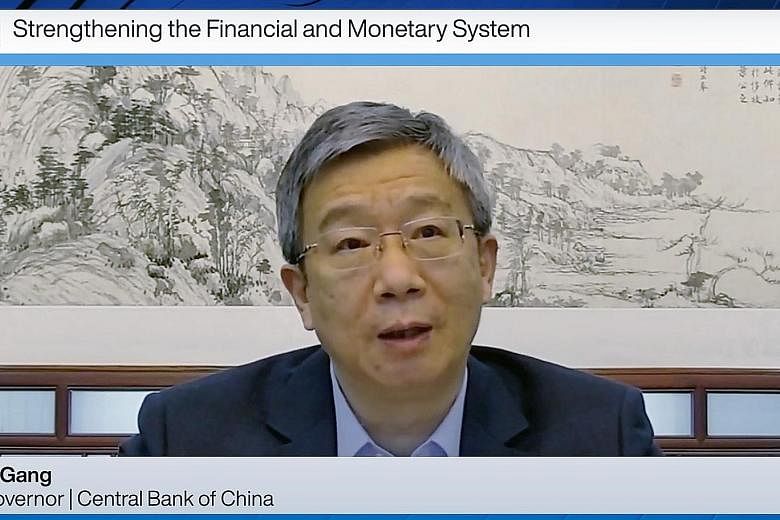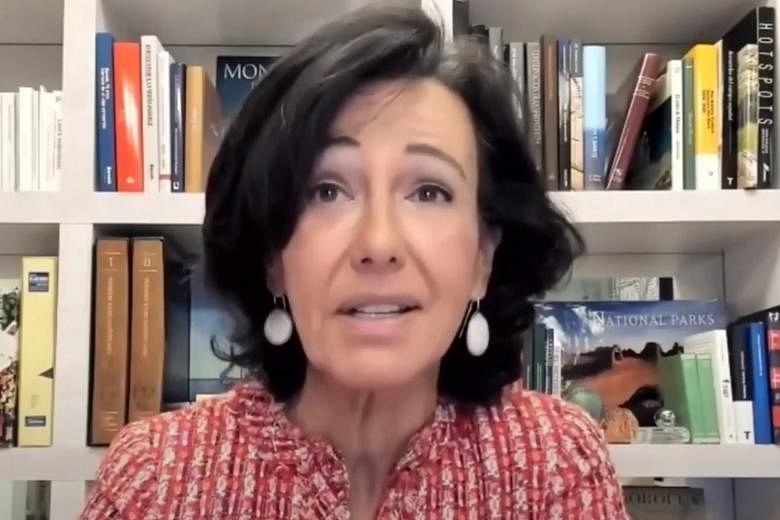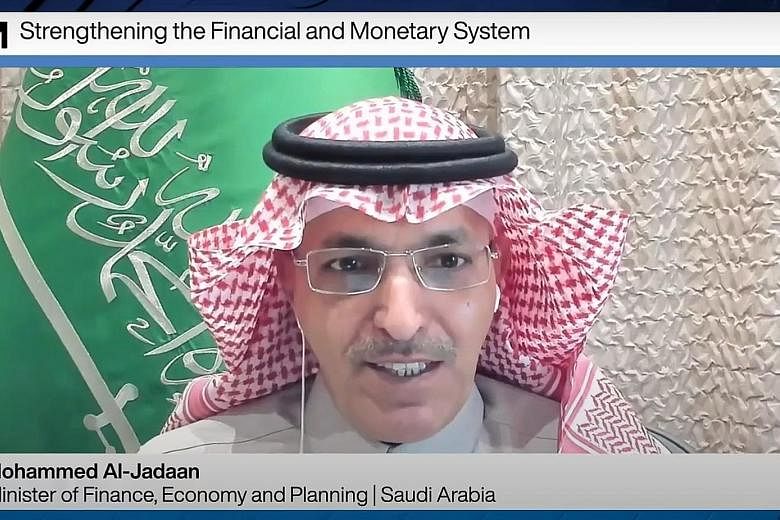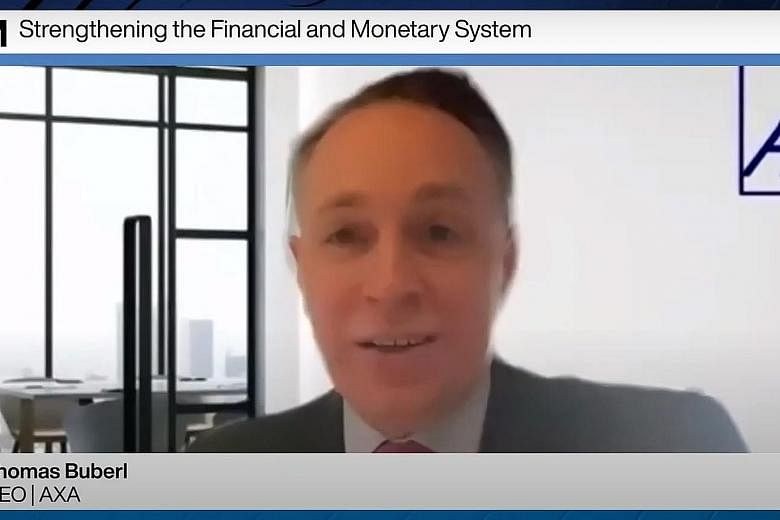Given the uncertainty over when the Covid-19 pandemic will end, governments around the world must undertake consistent and stable monetary and fiscal policies, and not exit from stimulus packages prematurely.
They will also need to ensure that lower-income countries and the most vulnerable sectors of their economies, such as small and medium-sized enterprises, continue to be supported.
This was the conclusion drawn by a panel yesterday on the topic of strengthening the financial and monetary system at the World Economic Forum (WEF) Davos Agenda 2021, a series of virtual sessions to discuss global issues under the theme "A crucial year to rebuild trust".
More than 1,500 business, government and civil society leaders from more than 70 countries are taking part in the week-long discussions, which will feed into May's WEF special annual meeting scheduled to be held in Singapore.
During the session moderated by Financial Times editor Roula Khalaf, People's Bank of China governor Yi Gang said the Chinese government would continue to use macroeconomic policies to maximise employment and boost consumption, which would facilitate China's transition to a more consumption-based economy.
"We will ensure that policy systems are consistent and stable, and will not exit from supporting policies prematurely," he said, adding that he expected China's gross domestic product growth this year to return to pre-Covid-19 levels.
Banco Santander group executive chairman Ana Botin said Covid-19 had brought together the European Union in a "historic" way, with European leaders agreeing in July last year to create a €750 billion (S$1.2 trillion) recovery fund to support their economies affected by the crisis.
The European Central Bank, too, had intervened early and decisively, she said.
"The challenge for Europe now is how it will use these funds, and also their governance.
"There are conditionalities (tied to the funds), which are meant to speed up digitalisation and the energy transition," she said.
"Europe is going to do this together. It is the only way to have a sustainable growth strategy."
Saudi Arabia's Minister of Finance Mohammed Al-Jadaan cited the Group of 20's (G-20) Debt Service Suspension Initiative (DSSI) as an example of global cooperation.
There are 73 countries eligible for a temporary suspension of debt-service payments owed to their official bilateral creditors.
The suspension period, originally set to end last month under Saudi Arabia's G-20 presidency, has been extended through June this year.
"We worked with these countries and looked at their debt forgiveness on a case-by-case basis," he said. "The G-20 is looking at ways we can work with the private sector (on this), and I would love to see more action from the wealthiest nations," he said, adding that under Italy's presidency this year, the progress of the DSSI and other initiatives will be monitored.
He warned, however, that if wealthy countries are aggressively pushed into debt forgiveness, it is possible "they won't be making money available next time".
AXA chief executive Thomas Buberl sounded a note of caution on the current low interest rate environment.
He said that while a period of low interest rates is necessary to keep financial markets functioning, this has also enabled companies to borrow cheaply as they normally would not have been able to.
The question is how to exit this period in a synchronised way that results in a soft landing, he said.
He added that with recent virus mutations and slow vaccine distribution, there is a risk that the pandemic could last longer than expected.
"How can states and central banks carry out the necessary economic policies and accommodate (the crisis) for longer, while making sure that financial discipline is kept?
"Not destroying confidence in the market is something which is extremely important for the success of this next phase."
He warned against using state support to prop up "zombie firms" indefinitely.
"We do not want to take away the natural selective mechanism of the markets."
